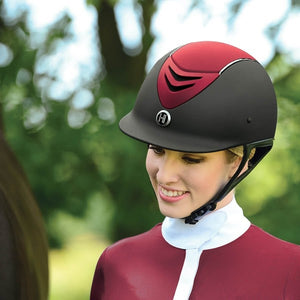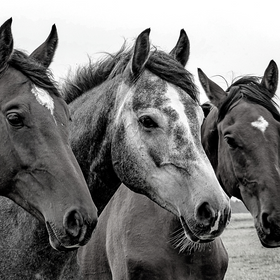
First Aid Kit Essentials For Your Horse
Accidents can happen at any time and are very common at the barn. Being prepared with your equine first aid kit will allow you to respond quickly to horse emergencies. The items you should consider for your kit may vary depending on your setup, your horse, frequency of travel, and your level of medical experience. For example, if you are not comfortable giving injections you may want to consider oral medications versus injectable.
You’ll need a waterproof, entirely mobile case to keep all of your items in. After you have a first aid kit prepared, continue to check it periodically to make sure all of the items are in good condition and medications have not expired. Medications are also prone to freezing in cold weather. If your first aid kit is not stored in a warm area, consider moving your medications into the house during cold weather. Make sure to refill your kit after any emergencies to make sure you are prepared for any other events.
Here is our list of important medical supplies we recommend for your horse’s first aid kit. Most of these items are easily purchased from your local tack store or veterinarian.
- List of equine vital signs: if you are not familiar with equine vital signs, print a list as an easy go-to. This will help make a faster diagnosis.
- Thermometer: you can use a digital or analog thermometer. Always double check that your batteries are working!
- Stethoscope: this can be handy for getting a pulse or for listening to gut sounds. Practice with the stethoscope prior to an emergency so you are familiar with the normal gut sounds for your horse.
- Flexible Bandage (Vet Wrap): this is great for bandaging small areas or areas with lots of movement. Bonus: they come in all sorts of fun colors and patterns! While vet wrap does not have an expiration date, you should replace them yearly as heat and age can cause the wrap to stick together.
- Adhesive Bandage Tape
- Absorbent Cotton Roll: great for cleaning and dressing wounds.
- Non-Adhesive Wound Pads: the 4” pads are a good all purpose size to have on hand.
- Blunt End Bandage Scissors
- Antimicrobial Scrub: for cleaning out wounds. Diluted iodine or betadine scrub are common for first aid kits.
- Rubbing Alcohol: this is handy for prepping injection sites or a quick hand cleaning
- Wound Dressing: we like this one by Farnam
- Latex Exam Gloves
- Triple Antibiotic Ointment
- Oral Syringes/Injectable Syringes
- Clean Towels: various sizes are nice to have on hand for different uses.
- Instant Activate Ice Packs: these are great to have on hand for both horses and riders.
- Flashlight: use for viewing hard to see areas or if you are in an area without electricity. Headlamps are also a great idea for hands-free lighting!





